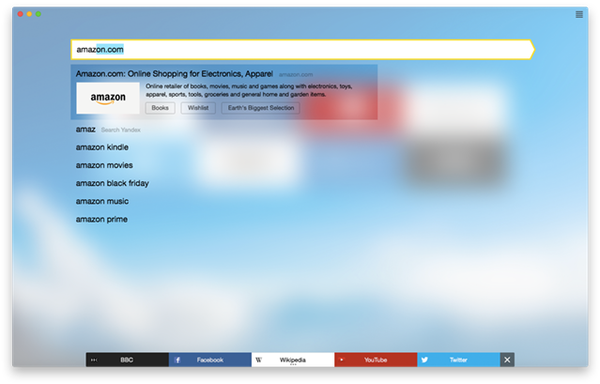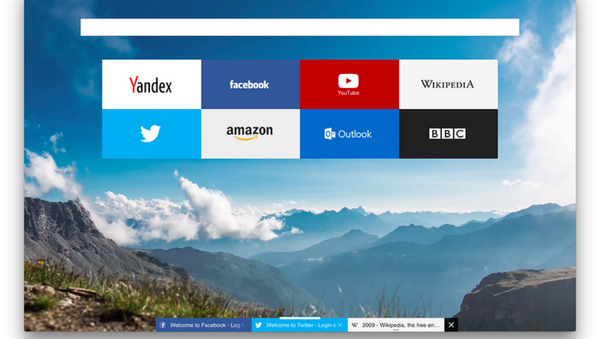In a departure from other browsers, the Yandex interface "blurs the boundary between the website and the web browser," since the tabs appear along the bottom of the screen instead of the top, as in rival browsers, and the search bar disappears when not in use.
Upon launching the browser, users can choose a default service provider from a choice of three: Google, Bing or Yandex.
"The minimalist concept version of our Yandex.Browser launched at the end of last year to respond to the highly interactive nature of contemporary web browsing is now available as a beta version, which is designed to also address the rising demand for personal privacy," said the company in a statement on Thursday.
"To meet the expectations of those users who would like to have more control over their digital footprint, we’re now rolling out a much more private beta version of the experimental Yandex.Browser, available in 15 languages, including English, German, Portuguese, Spanish and French."
The experimental alpha version of the new browser was launched in November last year, and uses the Chromium open-source browser, which serves as the foundation for Google Chrome.

Yandex is the most popular search engine in Russia, enjoying a 57.8 percent market share, followed by Google in second place with 34 percent. As well as its search engine, the company offers a range of services including email, maps, translation, cloud-based file storage, and an electronic marketplace.
In terms of browsers, Yandex occupies seventh place worldwide, with Chrome, Internet Explorer, Firefox, and Apple Safari the most used PC-based browsers, according to data from StatCounter. The Opera browser, based and developed in Norway, is in fifth place, while the Chinese 360 Safe Browser is in sixth.



